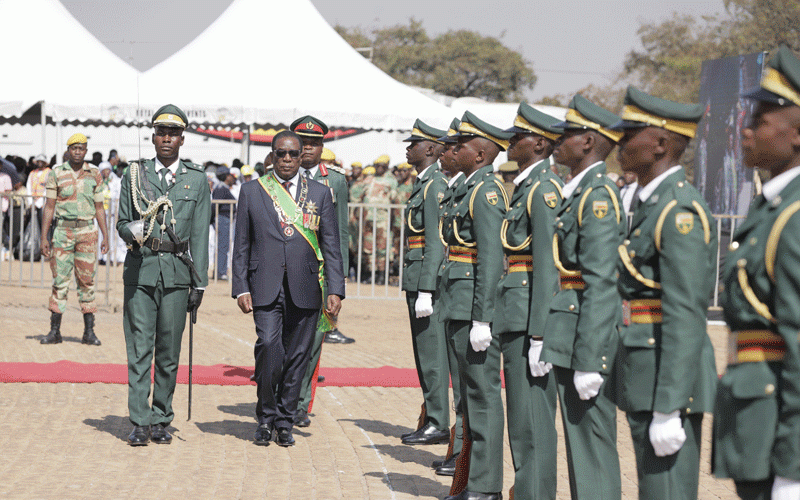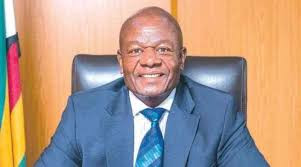
THE inhuman conditions imposed on Africa by colonialism compelled the agency to rehumanise power in its relationship with the Black body.
This also extended to stopping the looting and plunder of the continent’s resources.
That process became the defining benchmark for “African Nationalism” as conceptualised by Ndabaningi Sithole in his 1959 publication.
Sithole is the man who formed the then Zimbabwe African National Union (Zanu) on August 8, 1963.
Ironically, Heroes Day and Defence Forces Day celebrations also occur in August. Sixty-two years after the formation of Zanu (now Zanu PF) and 45 years after Zimbabwe gained independence, what lessons can be drawn from African Nationalism as a vehicle for governance excellence in the Zimbabwean context?
When Sithole wrote his book, the momentum for African nationalism had been reinforced by the independence of several African countries from colonial bondage: Egypt in 1922, Libya in 1951, Sudan and Morocco both in 1956, and Ghana in 1957.
By 1966, 38 African countries had become independent. This continentally infused and pervasive triumph of self-determination, courtesy of African nationalism, makes the idea even more relevant today as colonialism resurfaces in Africa through unorthodox means.
When Sithole made this submission, Zimbabwe (then Rhodesia) had graduated from proto-nationalism, primarily historicised as having manifested prominently in the 1940s.
- Bryn Mteki back on the music scene
- Pakistan likely to dissolve CPEC Authority
- Bryn Mteki back on the music scene
- Marange shrine: A mating ground for child molesters
Keep Reading
However, beyond this historicisation, it is a common cause that Africans in Rhodesia had begun challenging the monetisation of public administration.
Protests about the narrow franchise and the exploitative sale of labour to colonial capitalism had also formed the basis for the maturation of African nationalism.
This was the period which produced many advocates of Black freedom we now celebrate as heroes—not forgetting those who belonged to the pioneering period of resistance dating back to the Anglo-Ndebele War and other preceding moments of African rebellion against colonialism.
Therefore, today, as we celebrate Heroes Day, we must reflect on the quality of leadership credentials and the lessons we derive from the African nationalists in formulating present and future governance values for Zimbabwe and the African continent at large.
In the age of imperialist vestiges ravaging African institutions, we must have an uncompromised desire for consolidating African freedom, one free from tenets of Western standards and expectations.
This was the collective character of those who fought against colonialism. As Sithole (1959: 5-6) puts it, “What determined and still determines the course of events in Africa is the African’s definition of his situation, not the foreigner’s definition of Africa’s situation.”
In the same spirit, all political processes in our country must be determined by organic political agency. As such, our political heroes must arise from our immediate mandates for driving social change, not foreign nations’ interests. Our heroes must be enablers of grassroots-guided demands for poverty eradication, employment creation, and infrastructure development.
Our leaders must derive their conscience to govern from the principles which gave birth to African nationalism. We must not have governance models which indirectly reinforce the soft power of former colonisers in Africa through aid and political prescriptions advancing neo-colonial regime change motives. Change of governments in Africa must be a result of Africans’ fatigue with leadership incompetence—not for Africans to be told to hate their real heroes. In turn, today’s heroes in leadership across the continent must be able to acquit themselves as genuine stewards of their national interests. African leaders must not be mere proxies for foreign direct investment, which leaves no traces of sustainable development, especially in mineral-rich sections of African nations.
Africa and Zimbabwe’s contemporary heroes must be resolute in serving their nations, rather than wanting the fiscal purse to serve their personal needs and wants. Exemplary leaders such as Robert Mugabe, Ndabaningi Sithole, and Joshua Nkomo gave their lives to the service of mass interests without expecting anything in return. Such must be the culture of service for those entrusted with public office. The founding fathers entered politics to serve the people, not to squander the meagre earnings of their supporters.
This model of leadership is imperative, especially in the context of the abuse of political office for siphoning public resources. We have also seen the extent to which capital now associates itself with politics, not to promote service delivery efficiency, but to gravitate towards legitimised pillaging of public resources. Tender flamboyance is fast eroding genuine norms of people-centric service delivery. Gone are the days of accountable business ethics. Artificial corporate social responsibility through meagre and choreographed donations to institutions of public interest is now a veneer to create plastic heroes. This must never be allowed, as it is counter-revolutionary and inconsistent with the values set by the heroes who gave their lives to free the nation from oligopoly-monopoly capital. The foundational principles of nationalism must encourage all of us to serve the State rather than expect the State to serve our selfish needs and wants. We must restore the honour of virtue rather than exalt primitive accumulation. This era must produce politicians and business players who are corruption-free, as was the case with those we regard as our beloved national heroes.
African nationalism encouraged nationalists to give to the nation rather than take from it. This means our efforts, as heroes of the future, must be diligently ploughed into the cause of national prosperity rather than resource plundering. We must extricate ourselves from reproducing the very reasons why we fought colonialism. Never must we reproduce a Black Cecil John Rhodes; instead, we must strive to create a political culture which will produce a million more Chitepos, Tongogaras, and Silundikas—people who gave to the nation more than they took. The culture of relentlessly cutting, rather than contributing to the baking of, the national cake is shameful. The example set by liberation fighters confronting well-resourced Rhodesian forces was a clear trading of life for freedom. That sense of self-sacrifice—the willingness to give Zimbabwe your all—is key. As a public servant, ask yourself: “What did I do today for the Government of Zimbabwe? Is my level of service enough to protect the gains of hard-earned independence?”
A low salary must not be an excuse for failing to deliver competitively. Why accept to serve in public office where salaries are minimal, and then use that as an excuse for non-delivery?
Imagine what would have become of our freedom had Benjamin Burombo and Jason Ziyaphapha Moyo demanded salaries from the disenfranchised majority they fought to rescue from colonial domination.
At a tender age, freedom fighters left home armed with courage to confront guns.
They were resolute to fire back at machine guns with stones. Today, we are armed with truckloads of knowledge to challenge imperialism, yet we fail to use that knowledge to build pathways to justice, poverty eradication, and becoming the real heroes we are motivated to be through the virtues and exploits of the nationalist generation.
We must always aspire to be like the founders of our national liberation -the African nationalists.
Richard Runyararo Mahomva is a Pan-Africanist and academic










